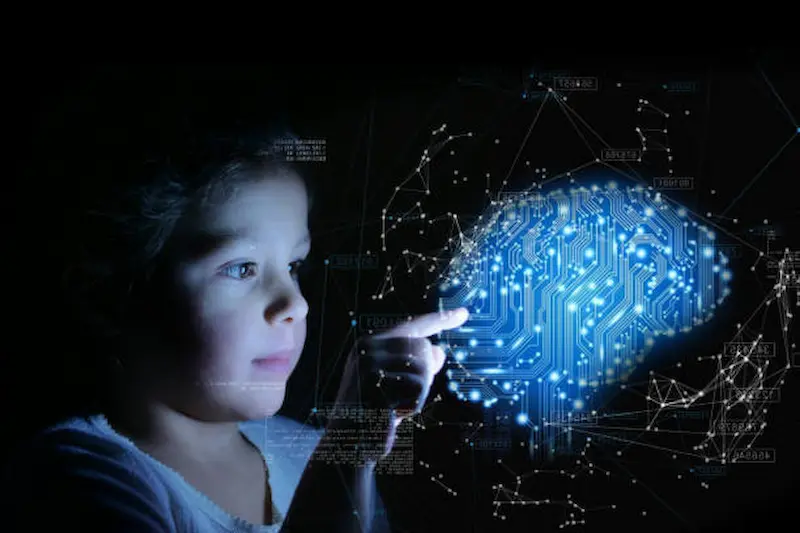Science is a systematic and organized approach to understanding the natural world through observation, experimentation, and the formulation of testable hypotheses and theories. It is a methodical process that seeks to explain natural phenomena, discover patterns, and gain knowledge about the universe.
In this blog, we delve into the profound significance of science in our daily lives. From the moment we wake up to the technology-driven conveniences we enjoy, science is our constant companion. It fuels medical breakthroughs that save lives, drives technological innovation that simplifies tasks, and empowers us with knowledge about the world around us. Whether we’re cooking a meal, checking the weather, or seeking answers to complex questions, science underpins every facet of our existence, making it indispensable for informed, enriched living.
Table of contents
- Unravelling the Essence of Science
- The Historical Tapestry of Scientific Advancement
- Advancements in Healthcare
- Education and Learning
- Scientific Research
- Nurturing Inquisitive Minds: Science in Education
- Problem Solving Skills
- Guardians of Our Planet: Science and the Environment
- Health and Well-being: Science’s Lifelong Companion
- Global Challenges and Science’s Response
- A Glimpse into Tomorrow: The Future of Science
- Conclusion
- Frequently Asked Questions (FAQs)
Unravelling the Essence of Science

A. Defining Science: More Than a Subject
Science is not merely a subject; it’s a methodical exploration of the natural world. At its core, science is the systematic quest for understanding through observation, experimentation, and analysis. It’s a relentless pursuit of truth, driven by curiosity and the desire to uncover the hidden mechanisms governing our universe. Encouraging science projects for kids can be a fantastic way to instil this spirit of exploration from an early age, sparking their curiosity and nurturing their love for scientific inquiry.
B. The Spectrum of Scientific Fields
Science spans a vast spectrum of disciplines, from physics and chemistry to biology and sociology. Each field contributes uniquely to our understanding of the world, with its own set of principles, methodologies, and challenges. This diversity is a testament to the richness of scientific exploration.
C. The Methodical Pursuit of Knowledge
The heart of science lies in its methodical approach. The scientific method, with its emphasis on hypothesis testing, data collection, and peer review, ensures the reliability and objectivity of findings. It’s a self-correcting process that constantly refines our understanding and leads to the breakthroughs that shape our world. To make science even more engaging, we can incorporate fun activities for kids that allow them to explore scientific concepts in an enjoyable way.
In essence, science is a collective endeavour that transcends subject boundaries, enriching our lives and pushing the boundaries of human knowledge. It is a beacon of reason and discovery, lighting the way towards a better future, all while offering fun activities for kids to experience the joy of learning.
The Historical Tapestry of Scientific Advancement

A. Ancient Roots of Inquiry
The origins of scientific inquiry can be traced back to ancient civilizations like Babylon, Egypt, and Greece. These early thinkers, such as Pythagoras and Aristotle, laid the foundation for systematic observation and reasoning. Their contributions in mathematics, astronomy, and biology paved the way for the scientific revolution.
B. The Renaissance and Enlightenment
The Renaissance marked a resurgence of interest in science and the arts, emphasizing the importance of art for kids as well. Visionaries like Leonardo da Vinci and Galileo Galilei challenged conventional wisdom, propelling humanity towards a new era of discovery. The Enlightenment further catalyzed scientific progress, emphasizing reason and empiricism.
Philosophers like Descartes and Newton developed groundbreaking theories in physics, mathematics, and philosophy, reshaping the intellectual landscape and inspiring future generations, including art for kids, to explore the intersections of science and creativity.
C. Science in the Modern Age
The modern age has witnessed an explosion of scientific advancements. From Darwin’s theory of evolution to Einstein’s theory of relativity, the 20th century refined our understanding of the universe. Today, scientific disciplines continue to evolve, with breakthroughs in genetics, AI for kids, and space exploration. The historical tapestry of science reminds us of our capacity for knowledge and innovation, driving progress and shaping our world in unprecedented ways.
Advancements in Healthcare
The profound impact of science on healthcare is evident in the remarkable progress made in medical science. From the discovery of antibiotics that have saved countless lives to the development of cutting-edge diagnostic tools like MRI and CT scans, science continues to push the boundaries of medical knowledge. Additionally, it plays a pivotal role in genetic research, leading to breakthroughs in personalised medicine, where treatments are tailored to an individual’s genetic makeup.
Education and Learning
Science education provides the foundation for critical thinking skills for kids and problem-solving skills. It equips individuals to navigate the complex challenges of the modern world. Whether in the classroom or through online courses, science-based education is key to personal growth and career development.
Scientific Research

Scientific research is a continuous journey of exploration and discovery, and it’s equally important to make science accessible through science for kids. It expands our knowledge, leading to breakthroughs that improve our lives. Whether it’s unraveling the mysteries of the cosmos, exploring the intricacies of the human body, or sparking the curiosity of young minds through science for kids, science fuels our curiosity and drives progress.
Nurturing Inquisitive Minds: Science in Education
The Crucial Role of Science Education cannot be overstated. Encouraging STEM Learning is pivotal in fostering critical thinking and problem-solving skills. Inspiring the Next Generation of scientists and innovators is essential for a prosperous and scientifically informed future, driving progress and tackling global challenges.
This can be achieved through hands-on science experiments for kids, igniting their curiosity and empowering them to explore the wonders of the natural world while building a strong foundation in STEM education.
Problem Solving Skills
The scientific method, characterised by systematic observation, experimentation, and analysis, equips individuals with problem-solving skills, including conflict resolution skills for kids, leadership skills for kids, that are applicable to various life situations. This approach encourages critical thinking, creativity, and evidence-based decision-making, enhancing our ability to address challenges effectively.
Guardians of Our Planet: Science and the Environment

In the face of The Climate Conundrum, science offers crucial research and innovative solutions to combat global warming. Simultaneously, Biodiversity and Conservation Efforts are vital for preserving Earth’s ecosystems. Embracing Sustainable Living in a Modern World, guided by scientific principles, is imperative for a sustainable and harmonious future.
Health and Well-being: Science’s Lifelong Companion
In the pursuit of lifelong health and well-being, science plays a pivotal role. Research continually uncovers new insights into nutrition, exercise, and mental health, including mindfulness meditation for kids. Advances in medicine and technology offer innovative treatments and diagnostic tools. Maintaining a balanced lifestyle, informed by scientific findings, can enhance longevity and quality of life.
Regular physical activity, a diverse diet, and mindfulness practices are key elements. Embracing the evolving landscape of health science ensures a healthier and more fulfilling journey through life.
Global Challenges and Science’s Response
The Pandemic Era has tested science’s mettle, emphasising its crucial role in understanding and addressing global health crises. Resource Scarcity amplifies the call for sustainable solutions, underscoring the need for science-driven strategies to ensure a thriving future, a message we should convey through videos for kids. Ethical Frontiers pose challenges as technology advances, demanding responsible navigation of uncharted technological waters.
A Glimpse into Tomorrow: The Future of Science

A. Emerging Horizons: Cutting-Edge Fields
The future of science promises exciting advancements in quantum computing, regenerative medicine, and AI ethics. These cutting-edge fields are poised to reshape our world, pushing the boundaries of human knowledge and innovation.
B. The Anticipated Revelations: Breakthroughs on the Horizon
In the near future, we anticipate breakthroughs in clean energy sources, CRISPR gene editing for disease eradication, and space exploration that could unveil extraterrestrial life. These revelations hold the potential to transform humanity’s trajectory and improve our quality of life.
Conclusion
Science is not merely an academic discipline but an integral part of our daily existence. Its influence extends into every corner of our lives, making it impossible to overlook its significance. By recognizing the multifaceted role of science, we can appreciate how it enhances our quality of life, addresses global challenges, and fuels our innate curiosity. Science truly shapes the world in which we live, making it a subject of paramount importance in our daily lives.
To get your hands on more such educational and free resources on coding, robotics, game development, etc., do check out the Brightchamps Blog Page now!
Frequently Asked Questions (FAQs)
A1. Science is crucial in our daily lives because it helps us understand the world, make informed decisions, and develop innovations that improve our quality of life.
Q2. How can individuals stay informed about scientific advancements?
A2. Individuals can stay informed about scientific advancements by reading reputable science news sources, following scientific organizations on social media, and engaging in lifelong learning.
Q3. What ethical concerns surround scientific research?
A3. Ethical concerns in scientific research include issues related to privacy, informed consent, and the responsible use of technology, requiring careful consideration and oversight.
Q4. How can society encourage scientific curiosity and literacy?
A4. Society can encourage scientific curiosity and literacy by supporting science education, fostering a culture of inquiry, and promoting critical thinking skills.
Q5. In what practical ways can we apply science in our daily routines?
A5. We can apply science in our daily routines by making evidence-based choices in nutrition, healthcare, and environmental conservation, and by using technology to enhance efficiency and convenience in our lives.


 We are an army of educators and passionate learners from BrightChamps family, committed to providing free learning resources to kids, parents & students.
We are an army of educators and passionate learners from BrightChamps family, committed to providing free learning resources to kids, parents & students.














